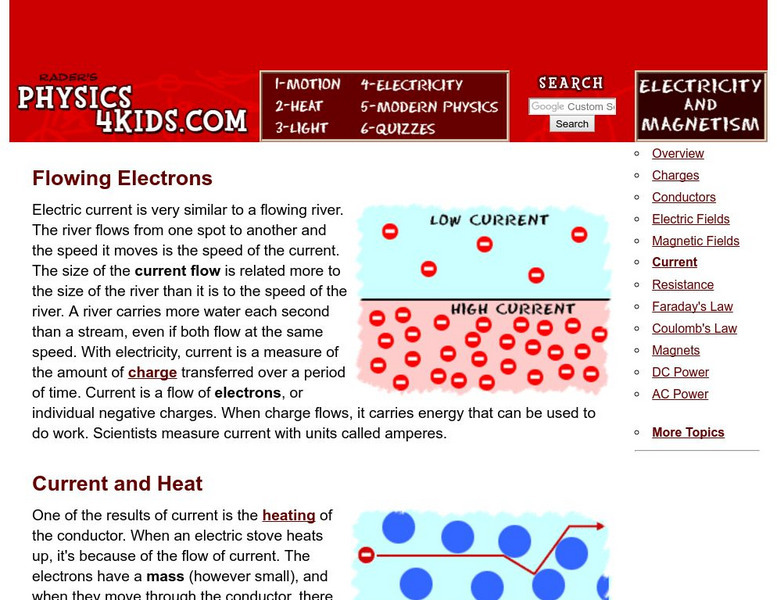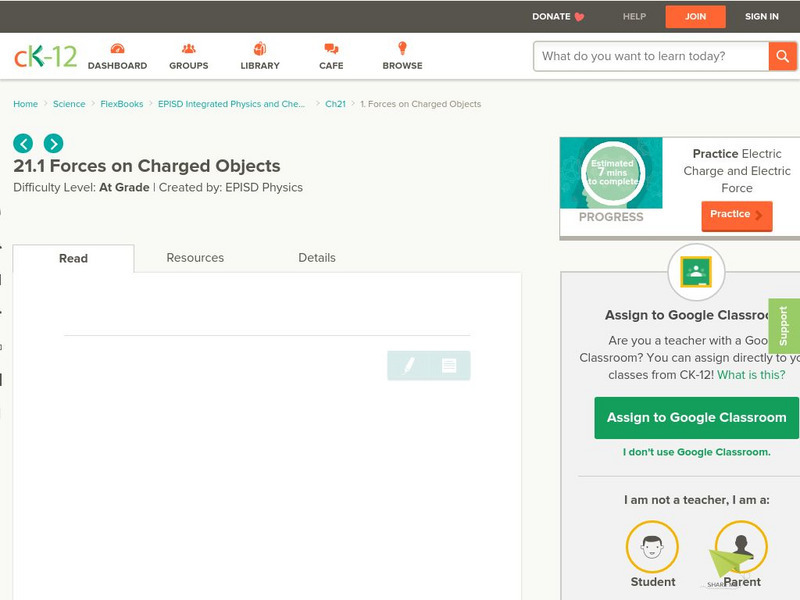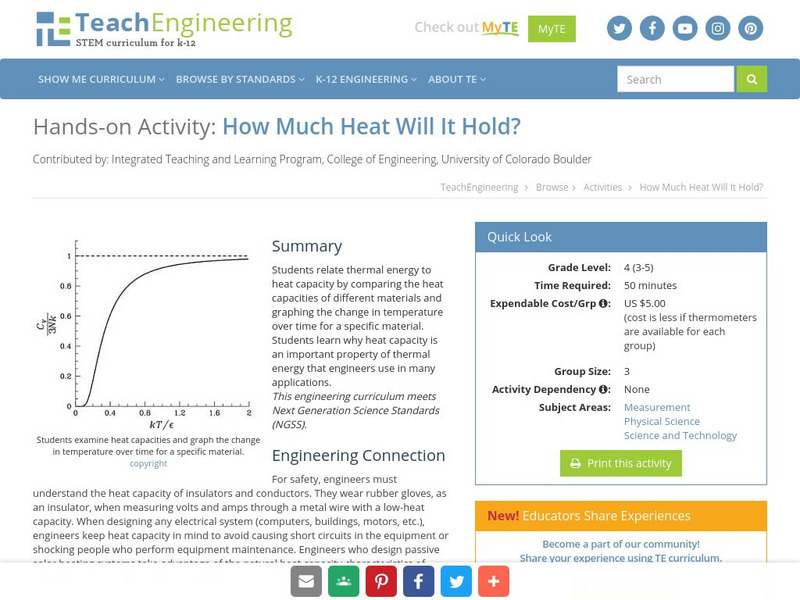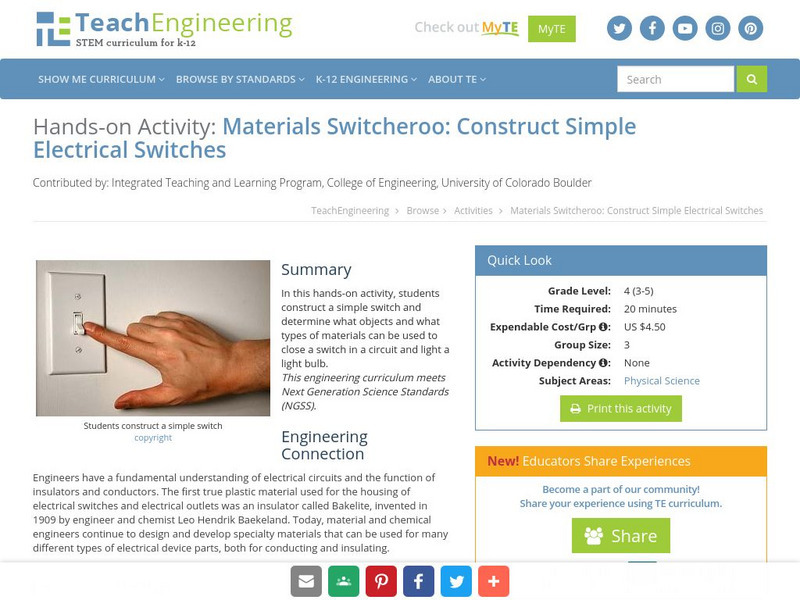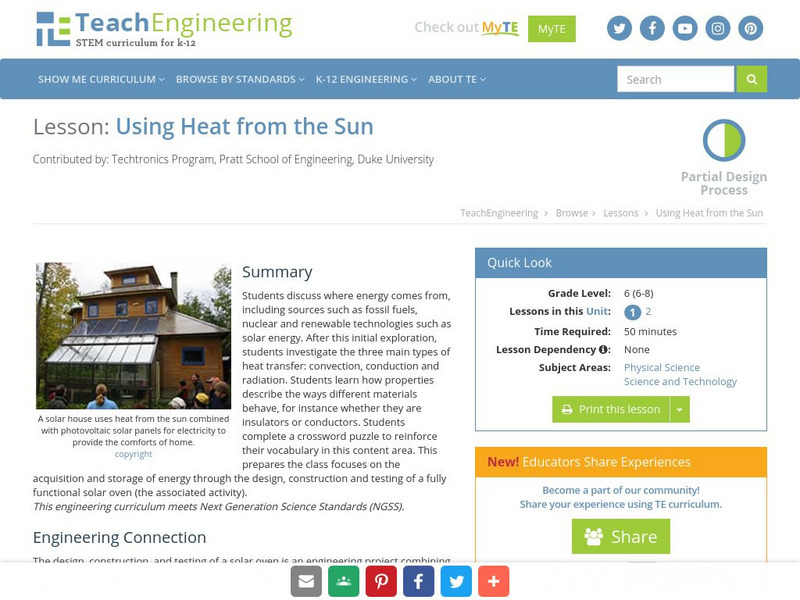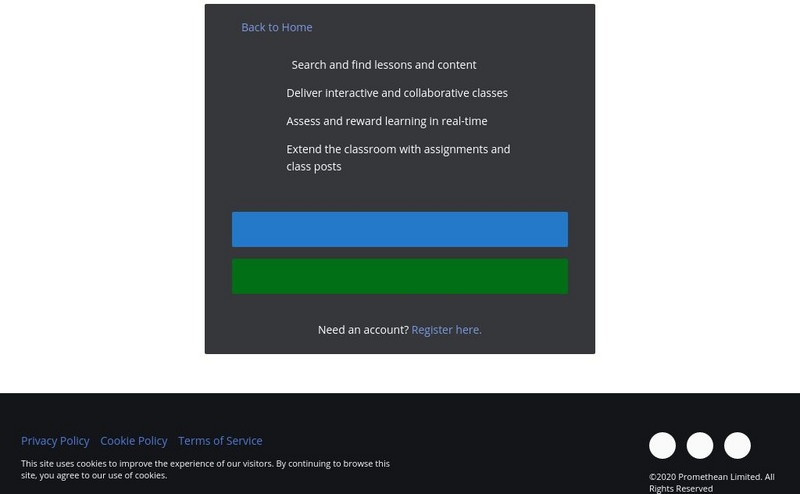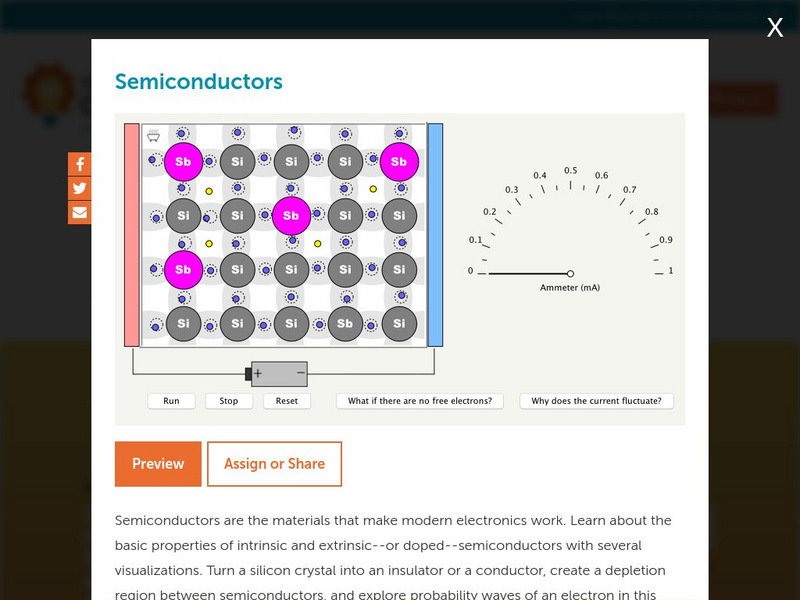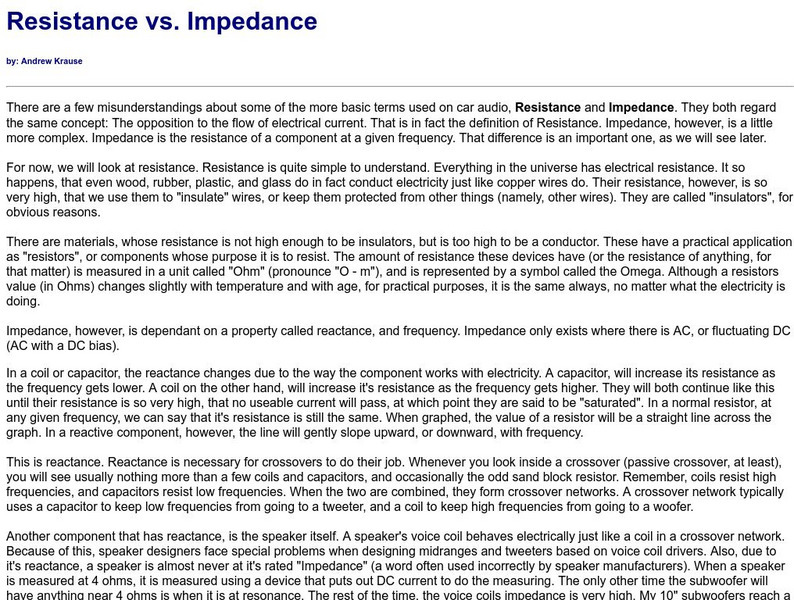Hi, what do you want to do?
Maryland Science Center
Maryland Science Center: Build a Conductivity Tester [Pdf]
Instructions on how to build an instrument that can be used to test which materials are conductors and which are insulators, in order to bridge a gap in an electrical circuit.
The Wonder of Science
The Wonder of Science: Ms Ps3 3: Thermal Energy Transfer Solution
Lessons to show thermal energy transfer. Students will "apply scientific principles to design, construct, and test a device that either minimizes or maximizes thermal energy transfer".
Physics4kids
Physics4 Kids: Electricity and Magnetism: Current
Explains electric current, how it produces heat, and the difference between a direct current and an alternating current.
CK-12 Foundation
Ck 12: Forces on Charged Objects
[Free Registration/Login may be required to access all resource tools.] Students learn which subatomic particles contribute to static electricity, and determine the charge of an object based on what particles it has gained or lost.
TeachEngineering
Teach Engineering: How Much Heat Will It Hold?
Students relate thermal energy to heat capacity by comparing the heat capacities of different materials and graphing the change in temperature over time for a specific material. Students learn why heat capacity is an important property...
CK-12 Foundation
Ck 12: Physics Simulation: Power Lines
[Free Registration/Login Required] Learn about the relationship between electric potential, current, and resistance in the context of high-voltage AC power lines using this interactive simulation. A PDF worksheet and a video tutorial are...
TeachEngineering
Teach Engineering: Will It Conduct?
Students build their own simple conductivity tester and explore whether given solid materials and solutions are good conductors of electricity.
Utah State Office of Education
Utah Science: The Mysterious Force
There is a secret mysterious force in your home right this very moment! Try these activities to first identify that force and then extend your knowledge of the force by investigating the other activities provided.
TeachEngineering
Teach Engineering: Switcheroo
In this hands-on activity, students construct a simple switch and determine what objects and what types of materials can be used to close a switch in a circuit and light a light bulb.
TeachEngineering
Teach Engineering: Using Heat From the Sun
In this lesson, students will first discuss where energy comes from, including sources such as fossil fuels, nuclear, and such renewable technologies as solar. After this initial exploration, students will investigate the three main...
Georgia Department of Education
Ga Virtual Learning: Electrostatics
Through informational text, interactive activities, practice problems, and virtual simulations, students learn about the basic properties of electricity in this unit.
Physics Classroom
The Physics Classroom: Static Electricity Review
This review from the Glenbrook South High School provides a series of questions on various topics associated with static electricity (such as electrical insulation). Answers and explanations are hidden, yet easily accessed from within a...
ClassFlow
Class Flow: Keeping Warm
[Free Registration/Login Required] Through this unit children build their ideas about temperature as a measure of how hot or cold objects are and learn about thermal insulators as materials that can help to keep things warm or cool.
CK-12 Foundation
Ck 12: Fourth Grade Science: Physical Science: Electric Current
[Free Registration/Login may be required to access all resource tools.] Defines electric current and relates electric current to different materials (insulators and conductors).
Concord Consortium
Concord Consortium: Semiconductors
Semiconductors are the materials that make modern electronics work. Learn about the basic properties of intrinsic and extrinsic- or doped- semiconductors with several visualizations. Turn a silicon crystal into an insulator or a...
Physics Classroom
The Physics Classroom: Thermal Physics: Rates of Heat Transfer
Through illustrated examples and interactive examples, students investigate the topic of the rate of heat transfer.
Physics Classroom
The Physics Classroom: Charging a Two Sphere System by Induction
From the Multimedia Physics Studios. An animation depicting the induction charging of a double sphere system by the process of induction. The movement of electrons between spheres and between the ground and sphere is shown. The animation...
University Corporation for Atmospheric Research
Ucar: Atmospheric Processes Conduction
This simple demonstration helps students understand the concept of conduction. Site includes background information, images, and lesson plans outlining the demonstration of conduction.
eSchool Today
E School Today: Electricity
Explore current electricity and different types of electric circuits.
Other
Univ. Of Delaware Physics: More Semiconductor Physics
The University of Delaware Physics Department provides this site from a site titled "Silicon, Circuits, and the Digital Revolution," here is a series of four pages which explain the details behind how semiconductors work. An introduction...
Physics Classroom
The Physics Classroom: Electrophorus by Induction
This tutorial offers an animation depicting the induction charging of an electrophorus plate by the process of induction. Animation depicts the movement of electrons between plat and ground. The animation is accompanied by explanations...
Ducksters
Ducksters: Kids Science: Electricity 102
Kid's learn more about the science of electricity. How its measured and generated.
Other
Team Rocs: Resistance vs. Impedance
Compares resistance and impeadance using the example of car audio.
Other
Teaching Ideas for Primary Teachers: Science Ideas
A great resource to discover fun new activities to use in your classroom. Activities are age-appropriate, and span several science topics.





![Maryland Science Center: Build a Conductivity Tester [Pdf] Activity Maryland Science Center: Build a Conductivity Tester [Pdf] Activity](https://static.lp.lexp.cloud/images/attachment_defaults/resource/large/FPO-knovation.png)

